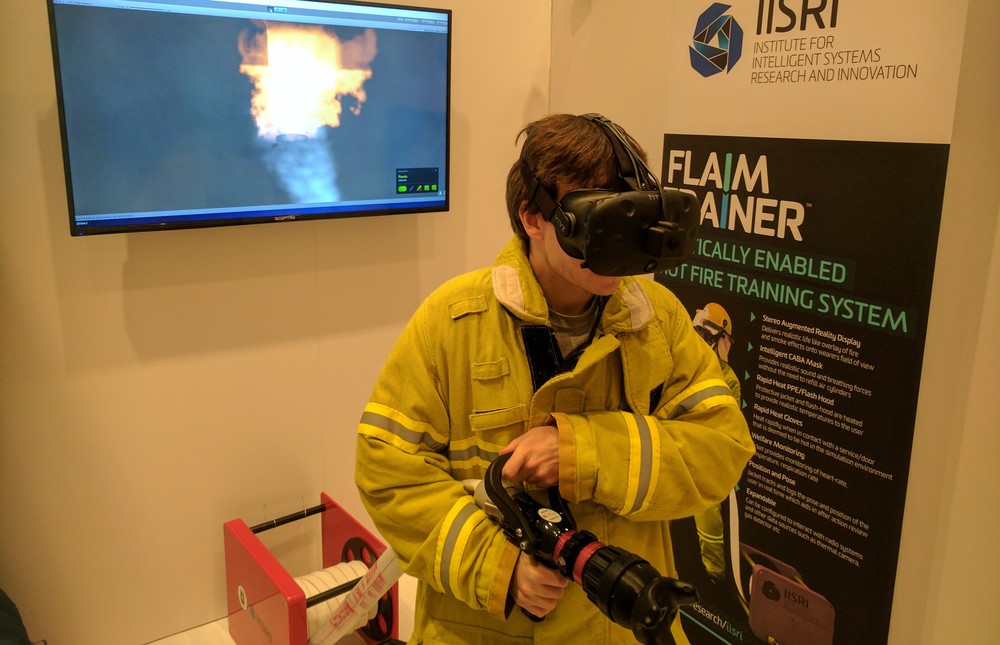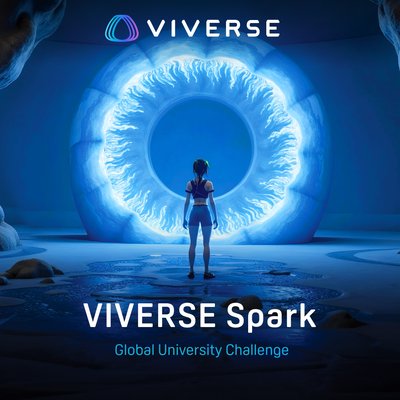HTC VIVE has worked with many partners to provide efficient and effective training solutions for businesses. Let’s take a look at some case studies and the benefits of VR training:
Physical occupation training both directly and indirectly creates a tremendous amount of money for businesses. In traditional training of firefighters, an effective training facility can set an organization back by millions, not to mention the recurring fee for maintenance and update.
“These multi-million-dollar training facilities don’t change much over time,” said Dr. Mullins, Chief Technology Officer of FLAIM. “Trainees get used to them and stop learning quickly, so we have to set up props. These could be replicas of cars, trains, houses, industrial kitchens, but they can cost between $300,000–500,000 per simulation.”

FLAIM systems, an immersive VR simulation that combines patented haptic feedback technology with real-world firefighting equipment, has provided a cost-effective solution for firefighter training. Organizations can obtain a complete FLAIM Trainer system for just one-tenth of the cost of one physical training session.
VR training not only saves businesses money but also time. Traditional training requires the presence of instructors to guide trainees, also someone to set up the props and space pre-training, and clean-up afterwards to be ready for the next training session.
Most of the VR training programs don’t require an instructor to be there throughout the training, all the instructions and guidelines are already coded in the program. Participants can run several simulations in VR, without putting the time and effort to prepare and set-up the training environment, so that participants can put all their energy and focus on the training.

Research has also shown that training time is faster in VR than in traditional physical settings. The USAF Air Education and Training Command Tech Training Transformation(T3 team) recently partnered with officials at the Sheppard Air-Force Base and re-engineered a Crew-Chief Fundamentals course into VR. The result is impressive. The participants finished the course 46% faster, completing the 27-day course in just 12.5 days.
VR training eliminates potential hazards that could happen during the training process. This is particularly helpful in hazard recognition, emergency situations and fall protection training. Trainees can fully immerse themselves in hazardous situations and figure out solutions for a variety of problems, without risking their life or health.
Firefighting workforce are exposed to high levels of carcinogens that can cause harm to the crews in the longer term. “Firefighters have a much higher chance of cancer than the general public and FLAIM is committed to providing alternative training techniques to reduce this exposure,” said Dr. Mullins.
During the training process, participants go through multiple steps to complete a task. Sometimes the participants can only find out what went wrong in the process after the training is over.
VR training utilizes the technology and provides participants with real-time-feedback. We can see in the FLAIM systems case study that the system takes advantage of VIVE Pro Eye’s integrated eye tracking to identify and analyze eye movements and patterns.
“This helps to provide an unprecedented level of data, analysis, and insight into trainee behavior. Instructors can see what they’re seeing and offer real-time, first-person feedback. Trainees get better visualization through heat mapping. As a result, fewer things get dropped and missed, and better habits are instilled. Trainees are looking less at the fire and more at electrical or chemical hazards and the integrity of the ceiling—little things that can become big problems fast.”
Learn more about VIVE Business.
Follow us on Twitter to get our latest updates on new products, sales, events, and more.





